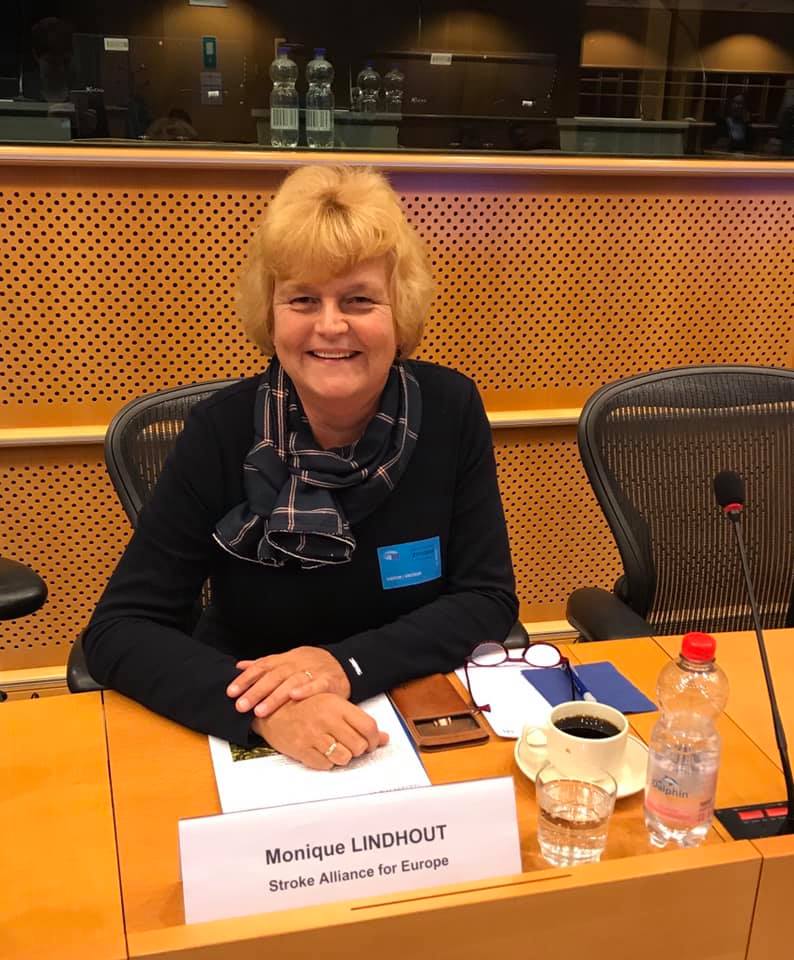“It is wonderful that more and more people survive a stroke, but that only about 10 percent of those survivors end up in medical specialist rehabilitation is at least worrying. And this low number applies to the entire group with brain injury, so also, for example, to people with injuries due to an accident” says Monique Lindhout, SAFE Board Secretary and Director of the Hersenletsel.nl.
SAFE: What is one issue related to the life after stroke in your country that you think needs special attention?
ML: The extent to which a stroke survivor can participate in society is largely dependent on the degree to which they are rehabilitated. In The Netherlands only 1 out of 10 stroke survivors is eligible for medical specialized rehabilitation.
It is good that a diagnosis is made quickly in hospital and treatment is started quickly. In addition, there is pressure from insurers to keep the treatment as short as possible. In practice, this means that triage also takes place quickly – often too quickly. The triage determines what the rehabilitation process will look like. Can a patient handle the intensive treatment in a rehabilitation institution, is geriatric rehabilitation in a nursing home appropriate? Or can someone go home immediately?
Far too often, people, young and old, are sent home under the motto “too light, no need for rehabilitation.” And there is another group: the people who are sent to the nursing home under the motto “damage done too serious, non-recoverable.” This too is still too common.
SAFE: What would be the solution, i.e. what is your organisation’s position regarding this issue?
ML: We truly believe that ‘a life saved needs also to be lived’ and that it is us, as a society, as a patient organisation, as healthcare professionals, as friends and relatives of stroke survivors, that will have to make this possible for all stroke survivors. We therefore focus on 4 different aspects:
– Involving family in the recovery process
Involving family gives a win-win-win situation:
• The patient wins: greater chance of recovery and of maintaining a network in the chronic phase
• The loved ones win: they help, grow with and grow towards good “dealing with” in the chronic phase. An active network prevents overloading of one of the primary caregivers.
• The professionals win: better results in less time
• Society wins: less burden of care and costs in the chronic phase.
– Training stroke survivors to become ‘ambassadors’ We developed a course ‘Ambassador’ in which stroke suvivors learn to use their own story ànd their own strength to support others. Over 200 stroke survivors are now successfully active in this field in a position that fits their interest, passion, competencies, available time and energy.
– Developing technical tools (apps, e-health) to enable people to work on their own rehabilitation at home
– Use an extensive media campaign on this subject
SAFE: Please tell us more about your organisation.
ML: Hersenletsel.nl is a patient association for people with non-congenital brain injury and their loved ones and focuses on the lifelong consequences of (non-congenital) brain injury. It stands for promoting self-reliance and social participation in a way that does justice to both the possibilities and limitations of people with brain injuries. The pillars of the association are contact with fellow sufferers, information provision and advocacy. Hersenletsel.nl is the leading patient association for people with non-congenital brain injury and their loved ones in the Netherlands. The association wants to achieve adequate care, guidance, facilities and support structures for both people with a non-congenital brain injury and their loved ones. The association offers added value for its individual members through suitable and usable products and services.
The association can be found in every region in the Netherlands as an active patient association for people with brain injuries and those close to them. The association is the designated discussion partner for stakeholders at international, national, provincial, regional and local level. The association is also the initiator and participant in NAH centers and aphasia centers and has an active role in monitoring the quality of these centers from a patient perspective. The association is the designated participant in the development of care standards and quality criteria from a patient perspective for the care of those affected with brain injury.





